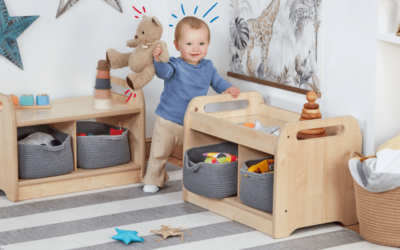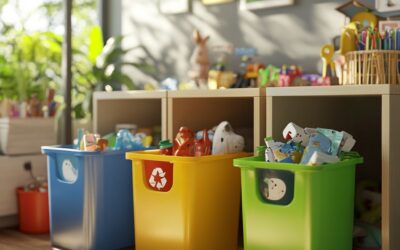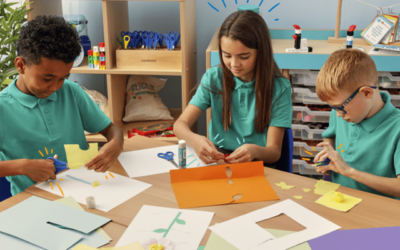Bridging the gap: early years maths
Early years maths activities do not need to be boring. Play is the way that children explore and learn about the world around them – so use play. It gives them chance to learn from mistakes and experiences, investigate and understand their environment and other children.
Play can give repetition and practise for all children to create habits. These habits help children to remember more easily what they are experiencing. This technique works for numeracy too.
Have a role but don’t control
It’s up to the professionals and parents to provide children with opportunities and environments to learn from. Opening doors to new activities and experiences is key to development in not just numeracy but in all aspects of early years education. The adult though shouldn’t direct and control the children in play. Instead, adults should be there to enhance and support with a helping hand toward safety.
Using play in your nursery to benefit early maths
It’s easy to say for people who don’t work with young children, that maths and play couldn’t be further from one another. The general consensus is that play is fun and maths is not, but it doesn’t have to be this way and should be far from the truth for the professionals on the front line.
From the moment they are born, children use maths to understand their surroundings. Immediately, shapes become important. The first shape recognition that babies experience and react to, are those of the human face.
When introducing materials which contribute to improving maths skills, children will naturally learn through their play sessions. Below are some examples of outcomes from maths-based play:
- Understanding early maths language about measurement, shapes, spaces, positions, early numbers, order and patterns
- Number sequences
- Positional words e.g. inside / outside / over / under
- Awareness of time
- Awareness of shapes around them
- Awareness of one-to-one correspondence
- Awareness of conservation
- Improved memory by learning number songs, e.g. one, two, buckle my shoe etc.
A child “knowing their numbers” is often thought of in simple terms such as a child that can recite numbers in ascending order. Of course, this is the basis of early number work but this doesn’t mean that the child truly understands the value of numbers. Play can help this by teaching children about conservation – e.g. “2” is always “2” no matter how it is presented. Two in written form, 2 as number form, 2 cars, 2 coins or 2 blocks. Physically handling ‘2 things’ helps children to understand this idea of conservation. It gives them a tangible amount to check and a better understanding to help cement it in the memory.
Encouraging parents to help early numeracy through play
As with any learning in an early years setting, encouraging parents to take similar approaches is always helpful. Doing so helps to galvanise the child’s understanding of a topic, especially as important as numeracy is to their development. Below are some tips to pass to parents looking to help their children to understand and enjoy maths. For example:
- Encourage parents to let children help with shopping e.g. “can you pick me two tomatoes?” etc.
- Simply count the stairs on the way to bed each night and if possible, count them backwards going downstairs in the morning
- Introduce the concept of time to their routine e.g. wash at X o’clock, breakfast begins at X o’clock, brush teeth at X o’clock etc.
- Setting the table for meals e.g. a plate for me, a plate for you = two plates
- Playing with toys in water and sand, counting how many there are
- Helping with washing and tidying up, matching items together
Children don’t have to struggle to reach the level they need in preparation for primary school. Commitment to habits when using numbers and understanding them with conservation techniques can certainly help. Children can reach their potential and bridge the gap between themselves and their peers, ensuring that they are ready to make the step up to primary learning.
Which techniques does your nursery apply to teaching numeracy?
Related blogs
Your Guide to the School-Based Nursery Capital Grant
What is the School-Based Nursery Capital Grant? For schools aiming to enhance their nursery facilities, the School-Based Nursery Capital Grant provides a simple funding solution. This grant is open to eligible state-funded primary schools in England that...
What Goes In, Must Go Out
Creating a Circular Economy in Your Nursery Author: Nick Corlett Sustainability Manager at LEYF Sustainability is more than a trend—it’s a shared responsibility, and the nursery is the perfect place to nurture these skills. Every day...
Top tips to create a SEND-Friendly Primary School Classroom
Author Lindsay Robinson Lindsay Robinson has been a primary school teacher for 23 years and is passionate about achieving the very best outcomes for children through quality first teaching and experiences. I remember receiving very little guidance during my teacher...


